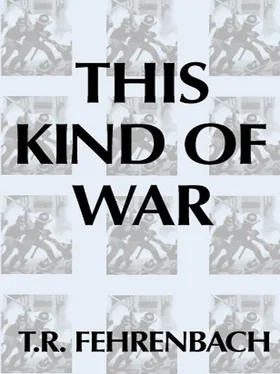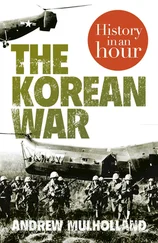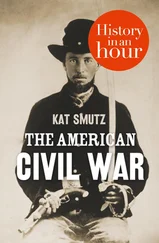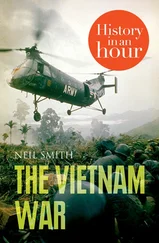This Kind of War
Author Biography
During World War II, T.R. Fehrenbach served with the U.S. Infantry and Engineers as Platoon Sergeant with the 3189th Engineer Battalion. He continued his military career in the Korean War, rising from Platoon Leader to Company Commander and then to Battalion Staff Officer of the 72nd Tank battalion, 2nd Infantry Division. He is currently a Major, Armor USAR.
Previous to his military involvement, a young T.R. Fehrenbach, born in San Benito Texas, worked as a farmer and was the owner of an insurance company. He now devotes his time to free-lance writing. He has sold numerous pieces to publications such as The Saturday Evening Post and Argosy. He is the author of several books, including U.S. MARINES IN ACTION, THE BATTLE OF ANZIO, and THIS KIND OF WAR. Mr. Fehrenbach still lives in Texas.
This Kind of War
The Classic Korean War History
T. R. Fehrenbach
An [ 1873 Press ] Book
For Lillian
Acknowledgments
THIS BOOK is compiled from many sources, official records, operations, journals, histories, memoirs, and newspapers; the greater portion, however, is culled from the personal narratives of men who served in Korea. In this sense, portions of the book may be more hearsay than history—and a sense of personal outlook must color each narrative.
There may be errors in these narratives, for memory is often a fragile thing. Wherever possible, all statements have been checked against official sources, to verify dates, unit designations, and names of personnel or commanders.
To a very great extent not high commanders but the men who stood around them were sought out. It is often painful for generals and commanders to talk, and besides, they tend to write their own memoirs. This is very much a platoon leaders' book based on the actions of men who led small units across the bloody face of Korea from June 1950 until July 1953. The majority of the men in these pages were professional soldiers, and therefore the outlook is not warlike, but military. Men who did not lead troops in combat in Korea may disagree with them—but are in no valid position to contradict.
In many cases the names of the men through whose eyes the action was seen are not reported, for various reasons. In any case the names are not important. What happened is.
Grateful acknowledgment is made to the hundreds of individuals, in service or out, who contributed to this book, and to George C. Lambkin, Fort Sam Houston, Texas, who knows what a Public Information Officer should be. Without each of these, there might have been no book.
Foreword
Regard your soldiers as your children, and they will follow you into the deepest valleys; look on them as your own beloved sons, and they will stand by you even into death.
If, however, you are indulgent, but unable to make your authority felt, kind-hearted but unable to enforce your commands; and incapable, moreover, of quelling disorder, then your soldiers must be likened to spoiled children; they are useless for any practical purpose.
— From the Chinese of Sun Tzu, THE ART OF WAR
Ten years after the guns fell into uneasy silence along the 38th parallel, it is still impossible to write a definitive history of the Korean War. For that war did not write the end to an era, but merely marked a fork on a road the world is still traveling. It was a minor collision, a skirmish—but the fact that such a skirmish between the earth's two power blocs cost more than two million human lives showed clearly the extent of the chasm beside which men walked.
More than anything else, the Korean War was not a test of power — because neither antagonist used full powers—but of wills. The war showed that the West had misjudged the ambition and intent of the Communist leadership, and clearly revealed that leadership's intense hostility to the West; it also proved that Communism erred badly in assessing the response its aggression would call forth.
The men who sent their divisions crashing across the 38th parallel on 25 June 1950 hardly dreamed that the world would rally against them, or that the United States — which had repeatedly professed its reluctance to do so—would commit ground forces onto the mainland of Asia.
From the fighting, however inconclusive the end, each side could take home valuable lessons. The Communists would understand that the free world—in particular the United States—had the will to react quickly and practically and without panic in a new situation. The American public, and that of Europe, learned that the postwar world was not the pleasant place they hoped it would be, that it could not be neatly policed by bombers and carrier aircraft and nuclear warheads, and that the Communist menace could be disregarded only at extreme peril.
The war, on either side, brought no one satisfaction. It did, hopefully, teach a general lesson of caution.
The great test placed upon the United States was not whether it had the power to devastate the Soviet Union—this it had—but whether the American leadership had the will to continue to fight for an orderly world rather than to succumb to hysteric violence. Twice in the century uncontrolled violence had swept the world, and after untold bloodshed and destruction nothing was accomplished. Americans had come to hate war, but in 1950 were no nearer to abolishing it than they had been a century before.
But two great bloodlettings, and the advent of the Atomic Age with its capability of fantastic destruction, taught Americans that their traditional attitudes toward war—to regard war as an unholy thing, but once involved, however reluctantly, to strike those who unleashed it with holy wrath—must be altered. In the Korean War, Americans adopted a course not new to the world, but new to them. They accepted limitations on warfare, and accepted controlled violence as the means to an end. Their policy—for the first time in the century—succeeded. The Korean War was not followed by the tragic disillusionment of World War I, or the unbelieving bitterness of 1946 toward the fact that nothing had been settled. But because Americans for the first time lived in a world in which they could not truly win, whatever the effort, and from which they could not withdraw, without disaster, for millions the result was trauma.
During the Korean War, the United States found that it could not enforce international morality and that its people had to live and continue to fight in a basically amoral world. They could oppose that which they regarded as evil, but they could not destroy it without risking their own destruction.
Because the American people have traditionally taken a warlike, but not military, attitude to battle, and because they have always coupled a certain belligerence—no American likes being pushed around—with a complete unwillingness to prepare for combat, the Korean War was difficult, perhaps the most difficult in their history.
In Korea, Americans had to fight, not a popular, righteous war, but to send men to die on a bloody checkerboard, with hard heads and without exalted motivations, in the hope of preserving the kind of world order Americans desired.
Tragically, they were not ready, either in body or in spirit.
They had not really realized the kind of world they lived in, or the tests of wills they might face, or the disciplines that would be required to win them.
Yet when America committed its ground troops into Korea, the American people committed their entire prestige, and put the failure or success of their foreign policy on the line.
The purpose of this book is to detail the events of that action, and what led to it, and not to explore controversy. It does not seek to exalt the military nor to deride the traditionally liberal American view toward life. There is no desire to add fuel to the increasingly bitter dialogue between traditionalists, military officers, and "liberals" that has resulted from those events—a dialogue brought about more by the fact that the liberals would feel safer if the military would feel emotionally more at home in a society that was a bit more spartan, than by a clear assessment of the needs of the country.
Читать дальше












